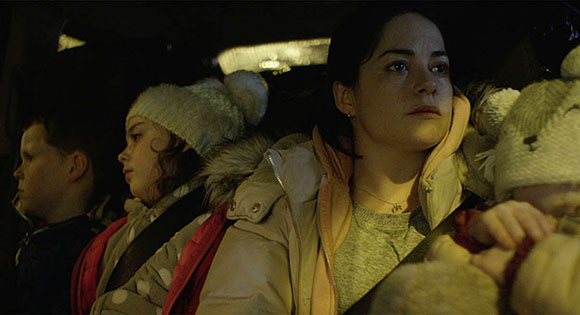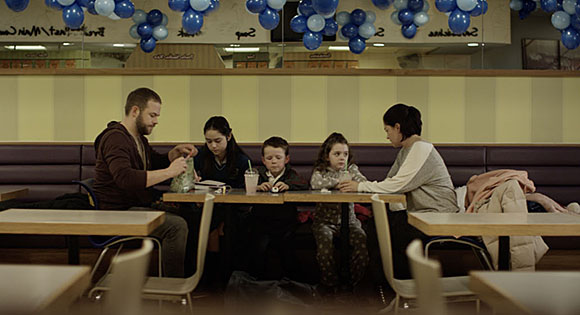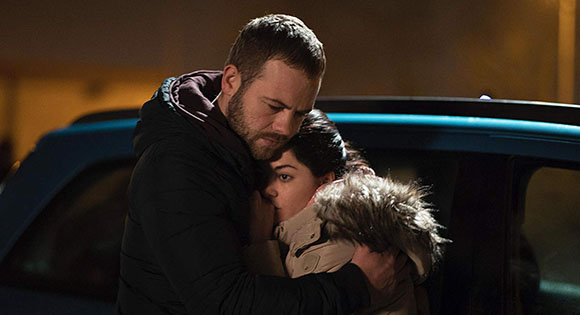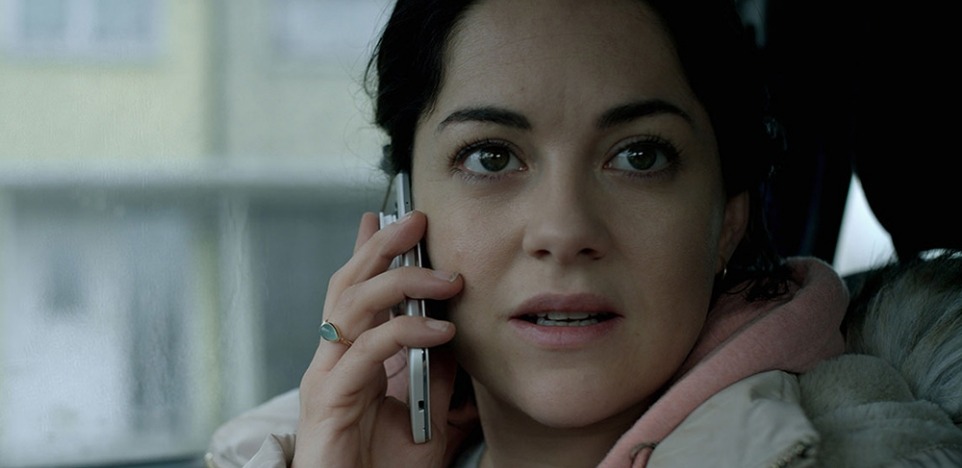This emotionally rich drama opens with a string of news headlines about the tragedy being created by high rents and low housing stocks. This has resulted in the fact that Ireland has one of the highest rates of homelessness in Europe.
Rosie (Sarah Greene) is married to John-Paul (Moe Dunford) who has a low-paying job as a dishwasher in a restaurant kitchen. They have four children: 13-year-old Kayleigh (Ellie O'Halloran), eight-year-old Millie (Ruby Dunne), six-year-old Alfie (Darragh McKenzie), and four-year-old Madison (Molly McCann).

After renting the same house in Dublin for seven years, this stunned family has been evicted so their landlord can sell the place. They need to find a new home that they can afford when there are very few places available. While John-Paul goes to work, Rosie takes on the humiliating and energy-draining job of finding overnight placements in crowded hotels.
Paddy Breathnach directs this harrowing depiction of homelessness. Sarah Green gives a stunningly realistic performance as a nurturing mother trying to keep things as normal as possible for her children despite their dire situation. The family spends a lot of time in their car, and when things go from bad to worse, they have to spend the night there.

The top-drawer screenplay by Roddy Doyle zeroes in on Rosie's courage and love under pressure: we see how being homeless erodes people's self-esteem and strips them of the normal things most people take for granted. Here are a few of the challenges this mother must face during the 36-hour period in the story:
- feeling the loss of a house that gave you and the children so much pleasure (in one heart-wrenching scene when they return to their old neighborhood to see a friend, Alfie runs to their old house to play on the trampoline);
- having to keep all your possessions in your car (when the family gets a hotel room for the night, they have to carry all their things inside, making it impossible for them to hide their situation from onlookers);
- losing contact with neighbors and friends (when Kayleigh goes to a friend's house after school, without telling her parents, the whole family falls in a state of fear and despair);
- trying to maintain a semblance of normality for the children (when Millie is bullied at school, Rosie lies to the school principal, telling they are just waiting for their new home to be ready for them);
- having to depend on the kindness of strangers and the services of government agencies for your survival (Rosie and her family have a temporary housing list and credit card supplied by a city agency to pay for their hotel rooms).

Perhaps the biggest challenge homeless people face is not knowing when their situation will end. Breathnach does not sugar-coat this reality, making his film all the more moving and powerful.
